


Three Christian converts were accused of promoting “propaganda against Islam”, according to the new restrictive Penal Code. Iranian believers ask to pray for encouragement and strength.

Prior to the march itself, a ‘LifeFest 21’ event took place, with testimonies, children activities and workshops.

The LGBT lobby in Castellón (Spain) asks the administration to “take actions” against the evangelical church and its social projects. The Spanish Evangelical Alliance condemns the “coercion” of freedom of speech.

The confinement and the Covid-19 restrictions in the Mediterranean country led to a generalised fall in all kind of hate crimes. Statistics could be “deceitful”, says the government.
Hatun Tash is a Christian apologist who has been sharing the gospel with Muslims in the well-known Speaker’s Corner of Hyde Park.

The government welcomes the “depathologisation“ of transgender people. Critics denounce legal uncertainties, a harmful approach to children, and the “erasure“ of women.
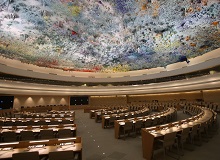
Addressing the Human Rights Council, the UN Expert backs “intersectional gender analysis”. The World Evangelical Alliance says Christians believe “human beings are created male and female” and defends the “freedom to express this belief in the public square”.
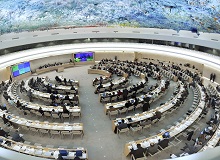
In a strongly worded report, the WEA representatives at the United Nations Human Rights Council say the Hindu nationalist government of India “solidified the environment of hate and intolerance toward religious minorities”.

In 2017, Revelation TV was fined with 6,000 euros for allegedly attacking the dignity of LGBT people. The judge says “critiquing ideas or positions” of others is a constitutional right.

The Council had justified its decision because of previous comments on sexuality of one of the speakers. Now it admits that it "acted unlawfully” and against religious freedom.
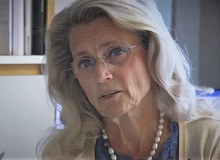
Harvard, Princeton and Yale experts say the prosecution of the Christian parliamentarian for incitement against homosexuals “will compel Finland’s lay religious believers to choose between prison and abandoning teachings of their various faiths”.

Evangelicals, Catholics, Jews, Muslims and Orthodoxs, issue a joint statement warning about the increase of “gratuitous attacks” and an increasing misunderstanding of the limits of freedom of speech.
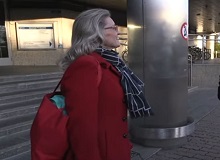
In Finland, a documentary film is being produced about the Christian politician prosecuted for expressing her views about the Bible and homosexuality.

The Spanish Evangelical Alliance writes to the Finnish ambassador, saying the court process against Päivi Räsänen is “a worrying step back that goes in the opposite direction of the Europe we all want to build together”.

“Teachings based on the Bible must be free to discuss in public”, says the Finnish Evangelical Alliance.
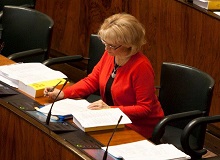
The Finnish Member of Parliament: “It did not even come to mind that my tweet or my opinions based on Christianity could be defamatory or insulting in any aspect”. “I will not step back from my conviction nor from my writings. I do not apologize for the writings of the Apostle Paul either”.
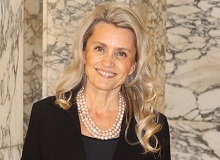
The Finnish General Prosecutor announces charges against the former Interior Minister for social media posts, a booklet and statements in a talk show. “I do not consider myself guilty. These are all based on the Bible’s teachings on marriage and sexuality”.
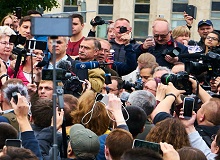
Reporters Without Borders (RSF) published its newest 2021 World Press Freedom Index, which denounces that 130 countries still do not fully guarantee the fundamental right of press freedom.
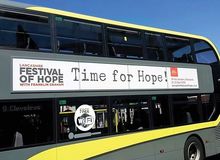
The local transport company removed Festival of Hope ads from its buses in 2018. A court has now ruled that it was “a wholesale disregard for the right to freedom of expression”.
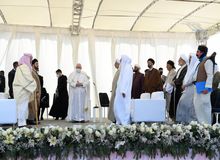
The pope's speech in his recent trip to Iraq undermines the Christian “scandal”, according to which Jesus Christ is the only way to the Father.

China passed a reform of Hong Kong's election law to evaluate the “patriotism” of the candidates. “Many people do not agree with the government”, says a Christian in the city.
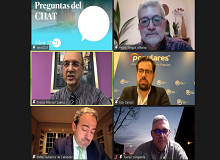
Representatives of three political parties joined the conversation with the Spanish Evangelical Alliance for the public event that opens the annual Idea conference.
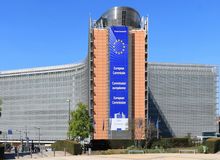
“Parents should ensure that the education of their children is in compliance with their religious and philosophical convictions”, says the EU Commission spokesperson for education, Sonya Gospodinova.

The Democrat took the oath of office on a family Bible. “We have much to restore, to heal, and much to gain”, he said. There were several references to faith during the ceremony.
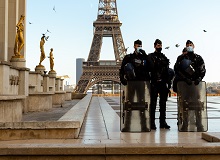
“Philosophical and religious convictions” will be described in records of thousands of people who are seen as a threat to the state. Evangelicals worried about the “fragility” of fundamental rights.

Las opiniones vertidas por nuestros colaboradores se realizan a nivel personal, pudiendo coincidir o no con la postura de la dirección de Protestante Digital.